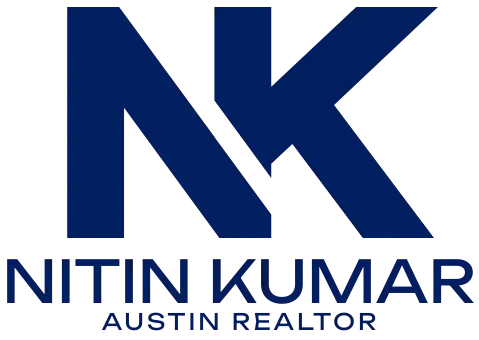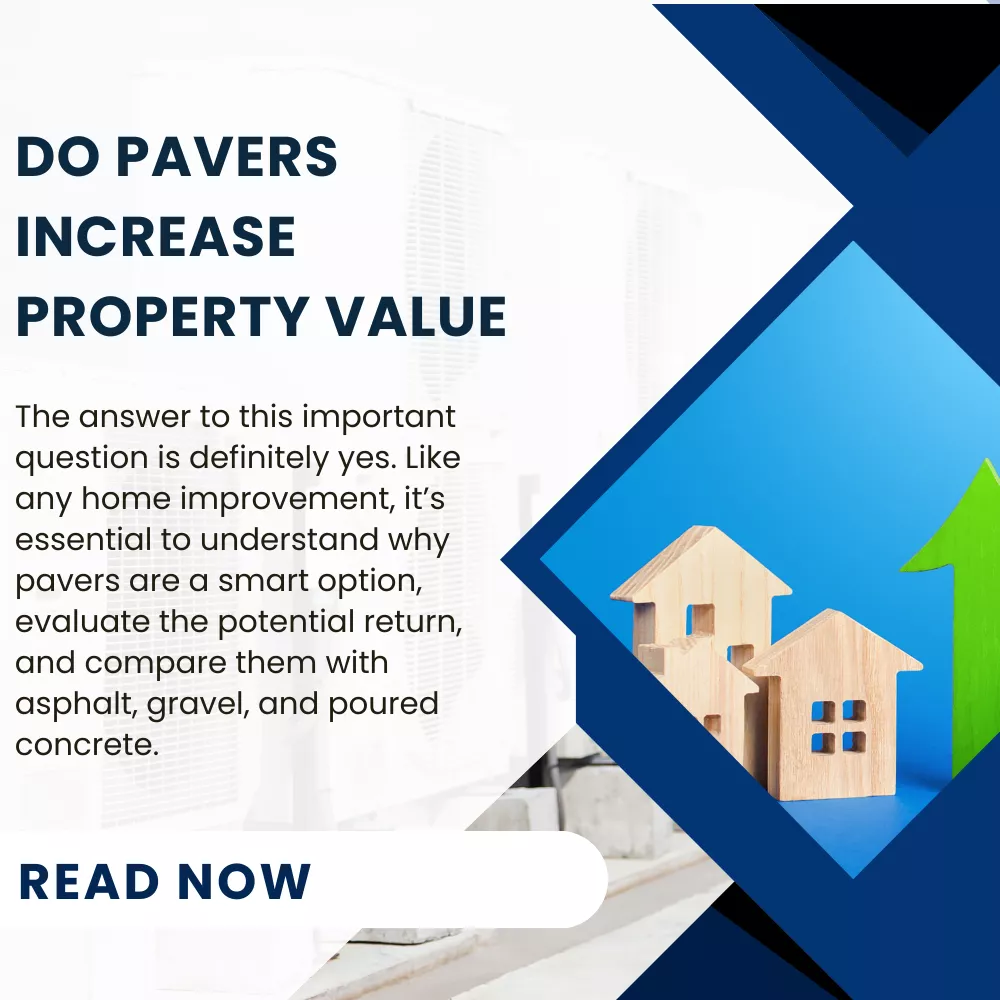Deciding the right place to put your money in can be a challenging task. An important fact which is worth noting is that approximately 22 million Americans refer to their mobile/manufactured houses as their official residence as of 2020. Our comprehensive blog post will guide you through all the ins and outs, thereby showcasing how investing in mobile houses could work out in your favor. Let us get started and find out the answer to the question of “Is purchasing a mobile home a good investment”:
Is Purchasing a Mobile Home a Good Investment?: Understanding What Mobile Homes Are
Mobile houses are highly affordable options for housing that individuals can move around as per their preferences. They come in numerous different shapes as well as sizes, right from small-sized trailers to larger, more modular houses.
Kinds of Mobile Homes or Manufactured Homes
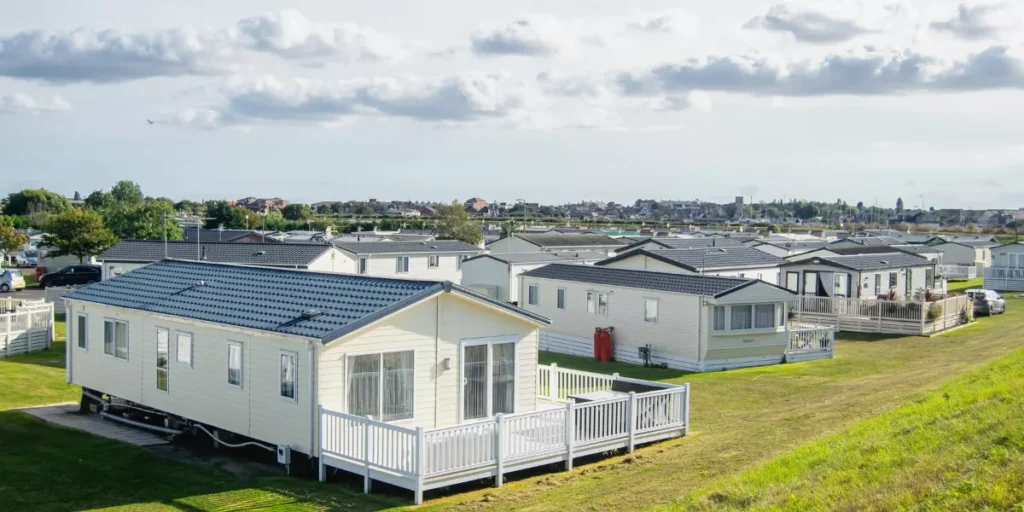
Built in a factory, mobile houses come in numerous different shapes as well as sizes, each of which are designed to fit the distinctive needs and budgets. Before the year 1974, any house that could be moved was simply referred to as a mobile home. However, the establishment of universal standards by the HUD (The U.S Department of Housing and Urban Development) paved the way for the creation of manufactured houses.
They must adhere to the set strict regulations for both quality as well as design when making such houses. Manufactured houses these days are readily available in three different sizes, namely: single-wide, double-wide, triple-wide. The first type provides compact living spaces, which is perfect for single individuals or small families.
Double-wides manufactured homes offer more room by featuring two joined sections together, thereby making them the perfect choice for larger families or those who require extra space. Lastly, triple-wides, as their name suggests, expand even further, thereby providing expansive residing areas with numerous bedrooms along with amenities, very similar to traditional family houses but at their total cost’s fraction.
Investing in a Mobile Home: Cost Analysis
Cost analyses of movable or mobile houses reveals them as a smart, budget-friendly option in the real estate market. The following table highlights all the financial aspects:
| Aspect | Details |
| Average Cost in April (2023) | $125,000 |
| Average Cost in May (2023) | $129,000 |
| Price Comparison With Single-Family Houses | Costs significantly lesser |
| Example of Depreciation | A $150,000 double-wide mobile home can lose over $50,000 in value over a period of five years. |
This analysis highlights the highly cost-effective nature of movable or mobile houses, especially when they are compared to generic single-family houses. It sheds light on prices which can vary within a short time period, with a significant increase from April 2023 to May 2023. This point of depreciation highlights a major financial consideration for potential investors.
In spite of the lower investment amount, movable houses can depreciate very quickly. The aforementioned table aims to offer a clear and straightforward view of mobile house prices for individuals who are considering this kind of investment.
Advantages of Mobile Home Investment
Investing money into mobile houses brings major savings on initial costs. This kind of housing also provides a very steady rental income stream, thereby making it a very smart choice for entrepreneurial individuals as well as investors who are on the lookout to enhance their cash flow.
Economical Purchase Costs
Mobile homes provide a well-affordable path in terms of home ownership. They are highly appealing in the current housing affordability crisis. As opposed to site-built homes, mobile homes need a comparatively low initial investment.
This makes them a robust option for purchasers who are looking to get into the traditional real estate market without spending massive amounts of money. The Costs are majorly reduced, offering a smart choice for individuals prioritizing economical purchase costs in their decisions related to real estate investments.
With affordability serving as a major attraction, mobile houses present a highly attractive opportunity for real estate investing. Lower maintenance costs along with renovation expenses further harden their position as a housing option which is cost-effective.
For investors as well as homeowners, the affordability of mobile houses translates into potential for a maximized RoI (Return on Investment) due to decreased upfront and ongoing expenses. This specific aspect of manufactured homes leads to numerous doors opening for tons of people to participate in the market of real estate, especially those who may be excluded because of financial constraints.
Rental Demand & Potential
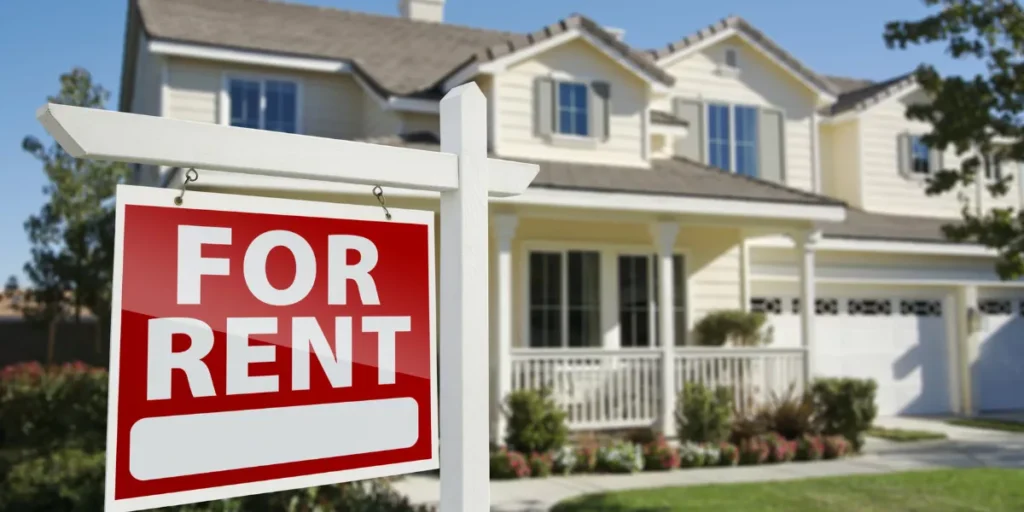
With approximately 22 million American residents opting to reside in manufactured houses, a major demand exists for low-cost living options. This specific trend aligns perfectly well with the increasing requirements for affordable housing across the entire nation. This positions mobile houses as a highly-attractive investment product. The unique blend of economical purchase costs as well as the expanding consumer preferences for sustainable housing increases tier potential as significantly-profitable rental properties.
The current landscape highlights that approximately 62% of people living in these kinds of places plan to stay in the place for more than a decade. This specific high retention rate points towards a stable renters’ pool and sheds light on the viability of investing in mobile homes as long-term assets.
Investors find immense value via direct returns from every month’s rent as well as fostering communities within mobile home parks – a massive factor that can majorly enhance tenant satisfaction in addition to loyalty. As mentioned earlier, the demand for affordable housing is on the rise, thereby making mobile houses very attractive rental investments. This crystal-clear shift towards aligning with alternative sources of energy such as solar panels on certain units further adds to their overall value and allure, mixing environmental sustainability with economic gains.
As landlords step into the sector, they delve into diverse streams of revenue, right from leasing plots of land to the management of entire parks – each of which offers pathways towards passive income in between fluctuating real estate costs as well as economic downturns.
Low-Cost Maintenance
One major benefit of low-cost maintenance they provide. Mobile houses often need a lesser amount of money as compared to traditional homes. This means that property owners can save major amounts on repairs, upgrades, etc.
Owners find that the maintenance of residences includes simpler tasks, such as regular checks, minute fixes, etc., each of which do not put a strain on their budgets. Energy-efficient designs in models which are newer also aid in minimizing utility bills, thereby making them comparatively more economical to maintain over time. Moreover, keeping costs of operations low increases overall profitability for investors. It ensures expenses do not eat too deeply into returns.
Mobile Home Investments Barriers
Investing in mobile houses faces numerous hurdles. Here is a closer look at some crucial ones:
Problems of Depreciation & Perception
Mobile houses usually face a slow and steady decline in terms of value, presenting a major barrier to investors. For example, a $150,000 double-wide mobile house may lose over $50,000 of its overall value within only five years. This particular depreciation is much more pronounced for houses which are located within parks, where their total worth tends to decline over time. As opposed to traditional opportunities for investments which can appreciate or increase the RoI of an investor, mobile houses usually do the exact opposite.
This specific perception around mobile houses adds an additional layer of challenge. Tons of individuals see these as options for low-cost housing with lower prestige as compared to modern or brick-and-mortar properties.
This stigma holds the potential to deter potential buyers in addition to reducing the demand for mobile houses as rental properties. In spite of advancements in the field of energy efficiency as well as eco-friendly features that certain modern manufactured houses offer, overcoming stereotypes which are negative stays as a hurdle for investors who are aiming to maximize their profits from this kind of ventures.
Finance & Insurance Hurdles
Locking in loans for mobile houses offers its own set of benefits. Mortgage lenders generally look at these kinds of houses as high-risk investments, thereby leading towards elevated interest rates in addition to less favorable conditions for borrowers.
In simpler terms, if an individual wishes to purchase a mobile house, they may end up giving more money over time as compared to traditional home financing options. Insurance for mobile houses also presents problems. Due to their high-susceptibility to take damage from disasters occuring naturally, such as flooding, insurance organizations might charge more amounts of premiums or offer options for limited coverage.
House Owners must perform in-depth risk assessments in addition to considering all the different aspects related to risk management in order to finalize on an insurance plan which offers sufficient protection without burning a hole in the pocket.
Legal & Zoning Barriers
Investors must face legal as well as zoning obstacles. Local laws generally dictate the location where mobile houses can be placed. Such regulations include restrictions related to density which can put a limit on the amount of houses an individual can place on a certain piece of land. This directly affects potential returns. Moreover, the rules in this regard are not static, meaning that they can alter, thereby adding layers of uncertainty when it comes to investment decisions.
Almost over three million modular houses are present in regions which are prone to flooding. This specific statistic highlights the vitality of understanding local laws for zoning, each of which govern mobile house placement with regards to environmental risks. Furthermore, when an individual is considering investing in a mobile house park, they must account for rules specific to the park as well as regulations that further make ownership duties more complex.
Investing in Mobile Houses: A Closer Look
Exploring investing in mobile houses opens up numerous profitable avenues. Individuals can generate income by renting or leasing out mobile properties, renovating them properly for selling, or managing a park that is full of these kinds of residences.
Determining your tactic mandates understanding the market, gathering knowledge about legal aspects, and efficiently managing the assets. With the correct approach, mobile houses set forth an exciting chance for both novice as well as experienced investors who are interested in bettering their portfolio.
Renting Out Mobile Houses
Renting mobile houses is a smart tactical move for individuals who are looking into or researching investment property options. With the demand for affordable properties increasing, mobile houses present forth an appealing opportunity to step into the growing market.
Owners can significantly benefit from economical buying costs as well as relatively low costs of maintenance when compared to generic or traditional forms of houses. This makes it very convenient to manage for-rent properties besides keeping up with all kinds of repair requirements, thereby ensuring joyful tenants who wish to stay for an extended period of time.
Efficient management of property also plays a major role in turning mobile houses into highly-profitable investments. By constructing robust relationships with tenants, landlords get the opportunity to minimize turnover rates besides vacancies. This secures steady streams of income.
Since owners are entirely responsible for maintenance as well as repairs, remaining on top of such tasks aids in the preservation of their investment’s value, all while satisfying the requirements of tenants. Engaging with an experienced real estate agent, or seeking guidance from attorneys who know all about local housing policies can provide important insights related to amplifying rental returns from these types of unique properties.
Flipping Mobile Houses
Flipping mobile houses refers to the process in which investors purchase such properties, make it undergo the required renovations, and then sell them off to earn a profit. This specific investment avenue needs less money in advance as opposed to buying traditional brick-and-mortar houses.
Investors find this very appealing primarily because the costs of renovations for trailer houses are generally lower, i.e., mobile homes typically are cheaper to renovate. This makes it much easier to earn profits. This specific tactic also facilitates individuals to manage risks in an effective manner. As they proceed in terms of investing in such properties, understanding the trends of the market as well as the property value becomes vital. By emphasizing on due diligence, investors can recognize mobile houses that offer the perfect potential for flipping triumph.
Owning Mobile House Parks
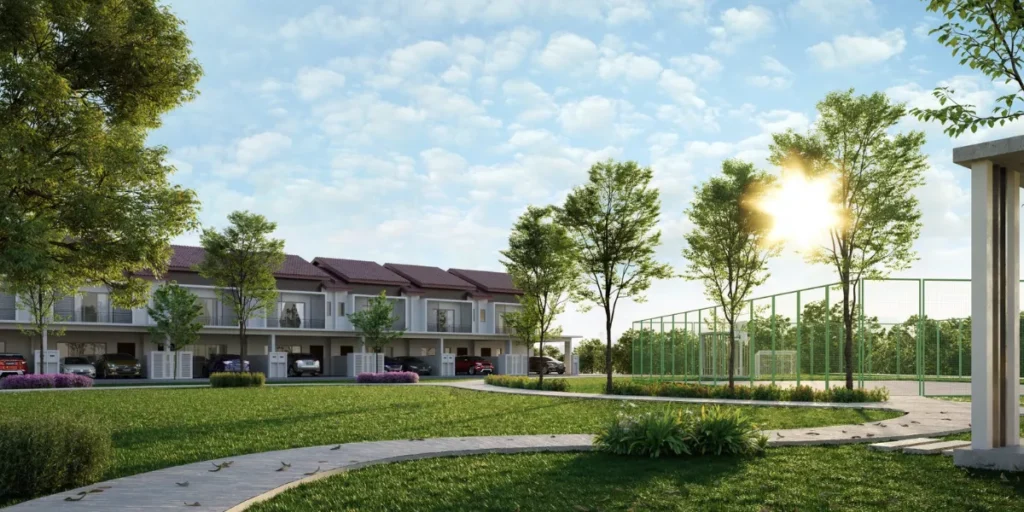
Owning a complete community of trailers offers a chance for earning steady revenue. This particular investment form brings in revenue via lot rents as well as charges for services or amenities within the trailer park.
Investors find it highly beneficial to collaborate with property brokers, discover different mortgage options, and most importantly, to increase the appeal of the area with better landscaping as well as structural improvements.
Engaging in this version of real estate brings numerous opportunities for fostering solid communities while simultaneously deriving benefits from economies of scale in terms of management and maintenance charges. Ensuring top-tier infrastructure not only captivates a higher number of residents, but also provides a boost to the reputation of the location as a place which is desirable.
Conclusion
Buying a mobile home is considered to be a savvy move for a plethora of individuals. This form of housing brings affordability as well as flexibility. Moreover, it opens numerous doors to the real estate market that may otherwise remain closed. With intricate planning and close attention to unique obstacles and challenges such as decrease in value over time, investors can achieve success.
Mobile homes provide an accessible point of entry into the world of property investment, promising exceptional potential returns via rental income/resale. This path is a very smart choice for individuals aiming to diversify their investment portfolio in today’s highly challenging economic landscape. If you too are searching for a mobile house, get in touch with a renowned realtor to get the job done with ease.
